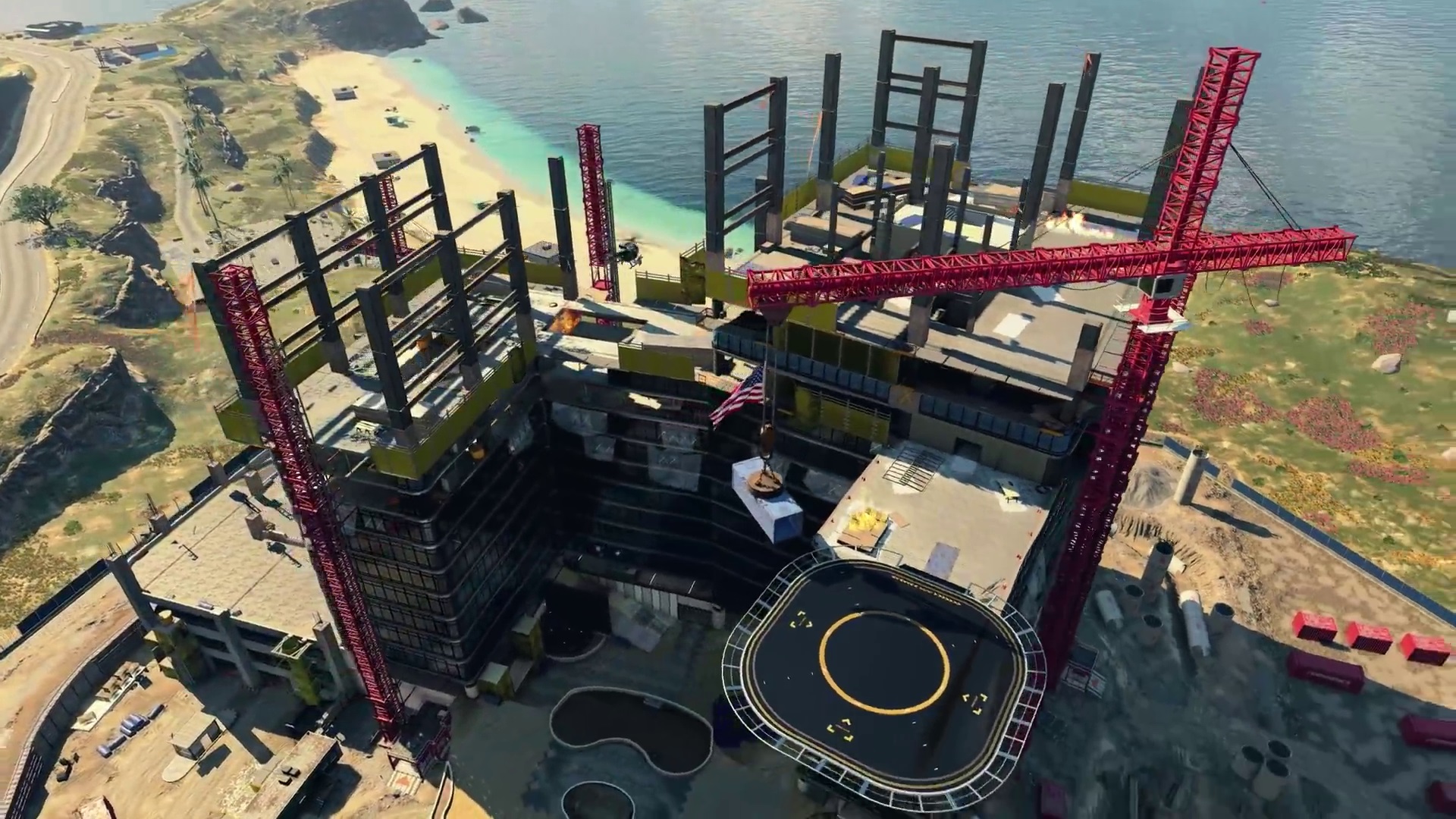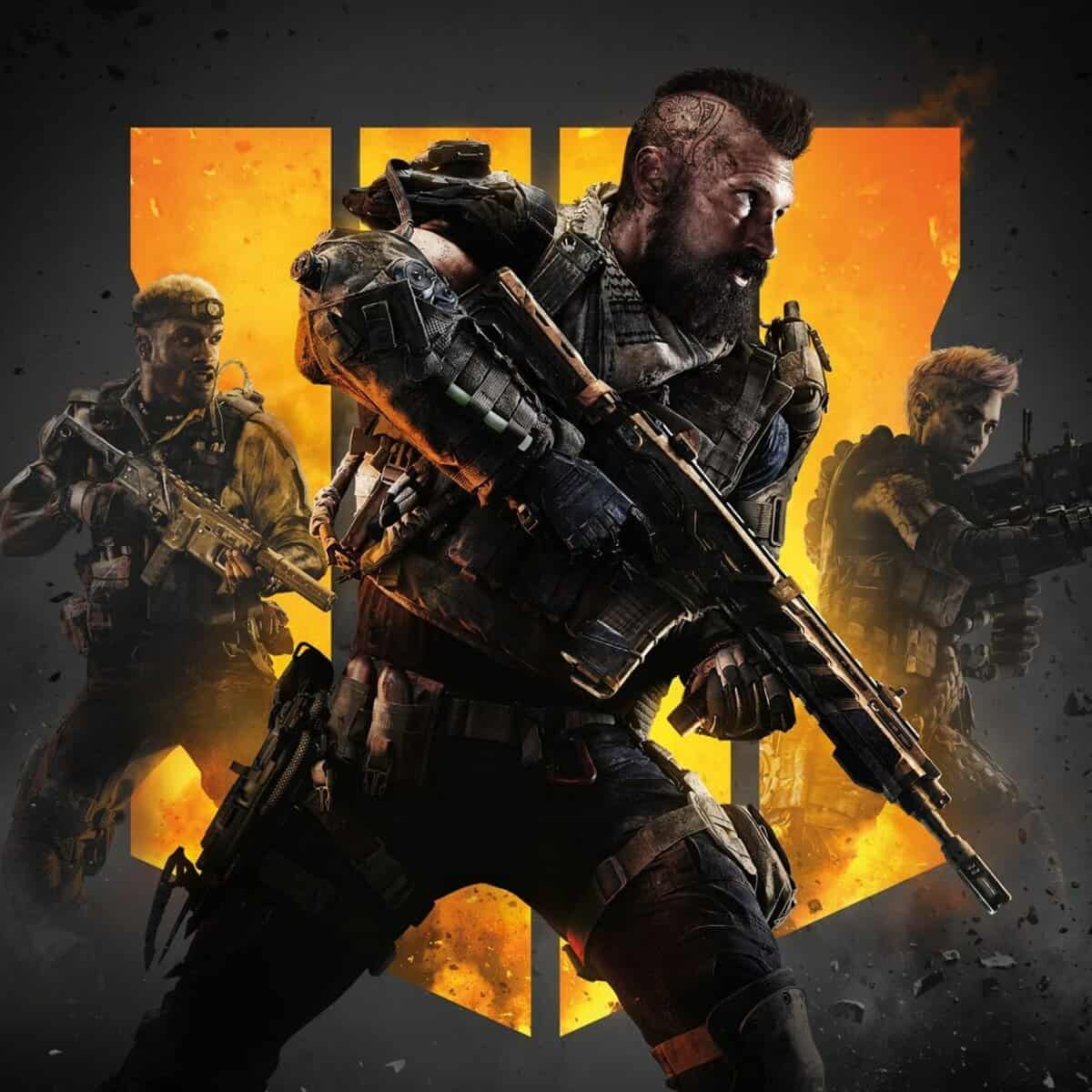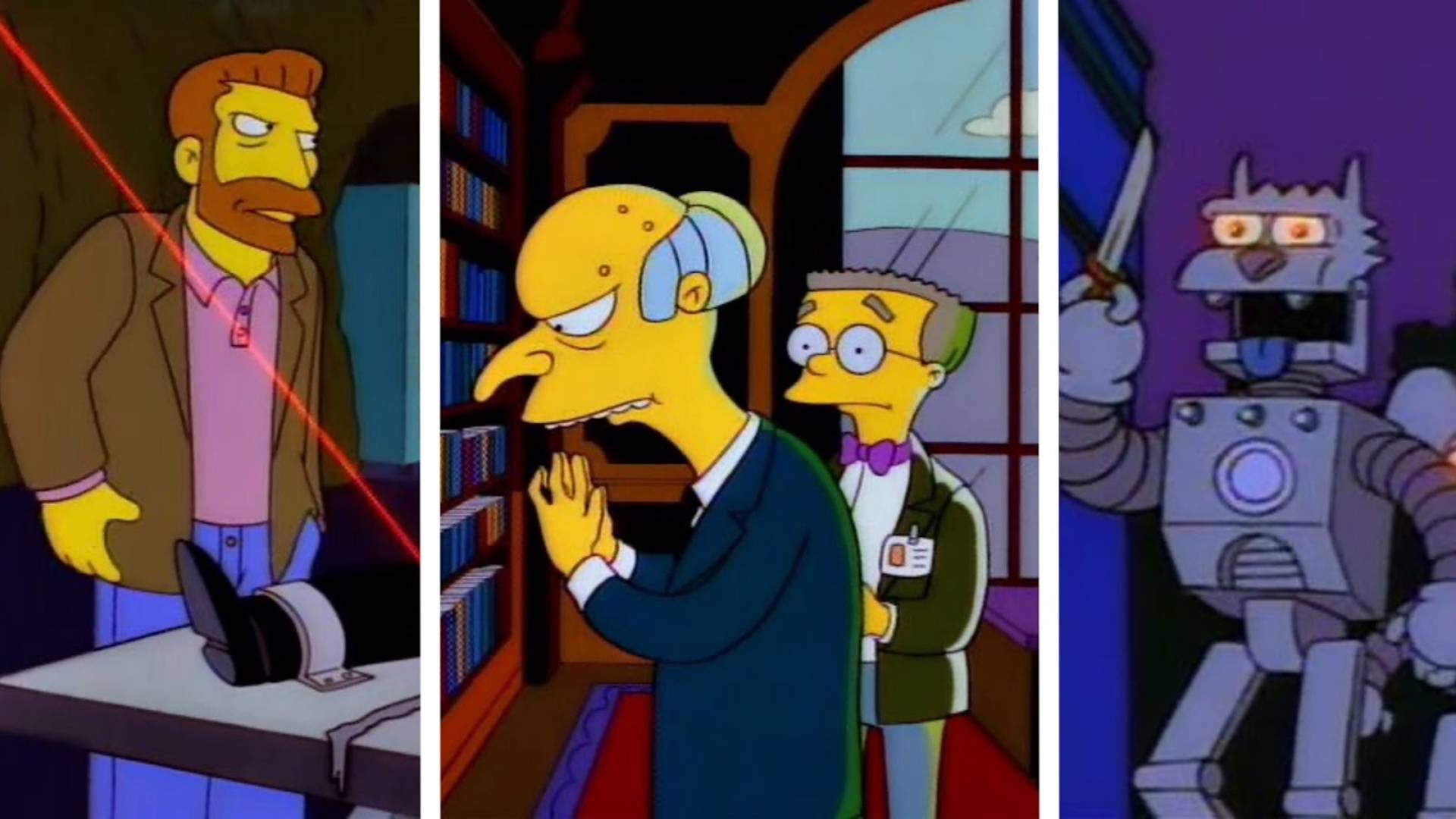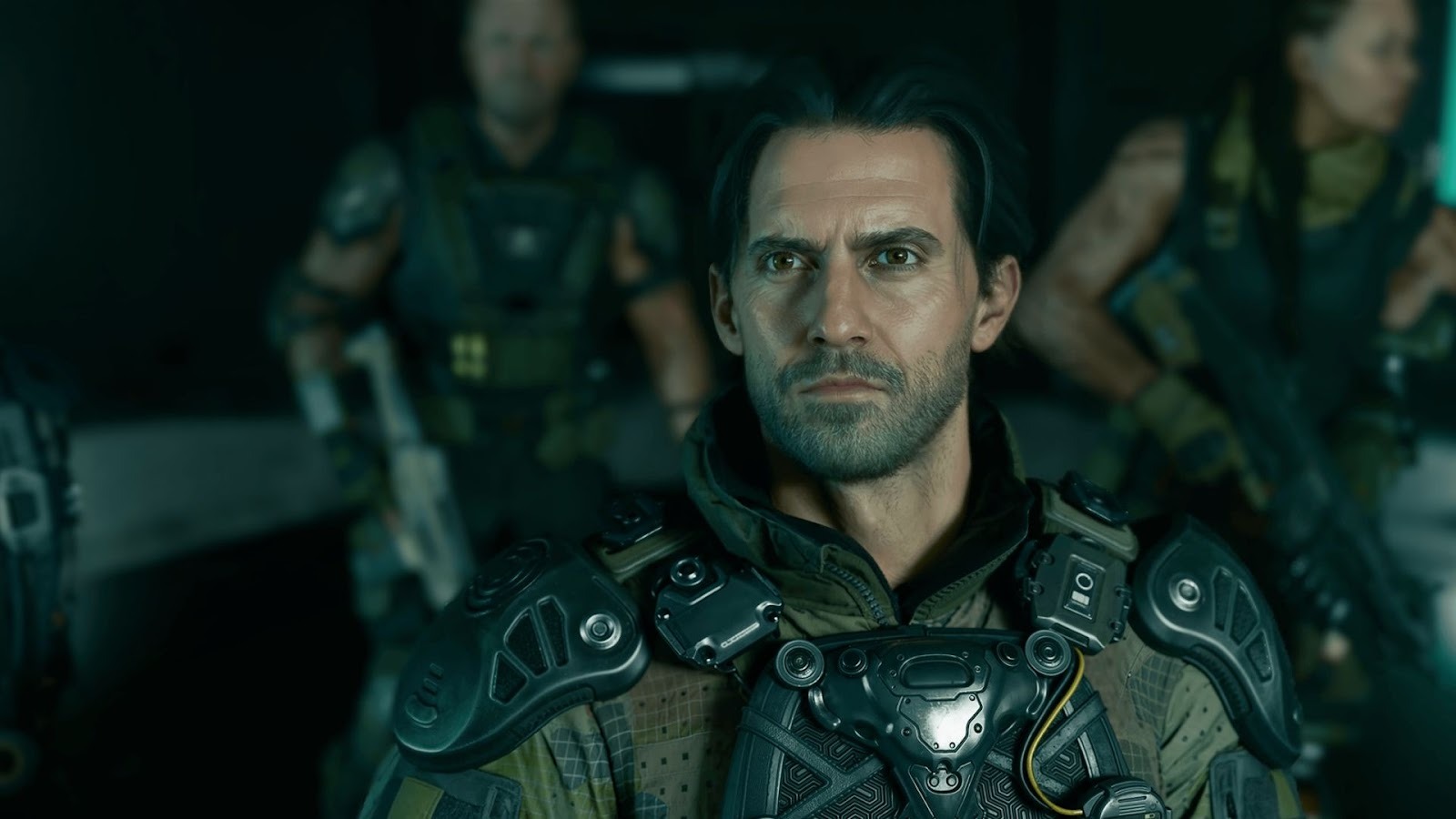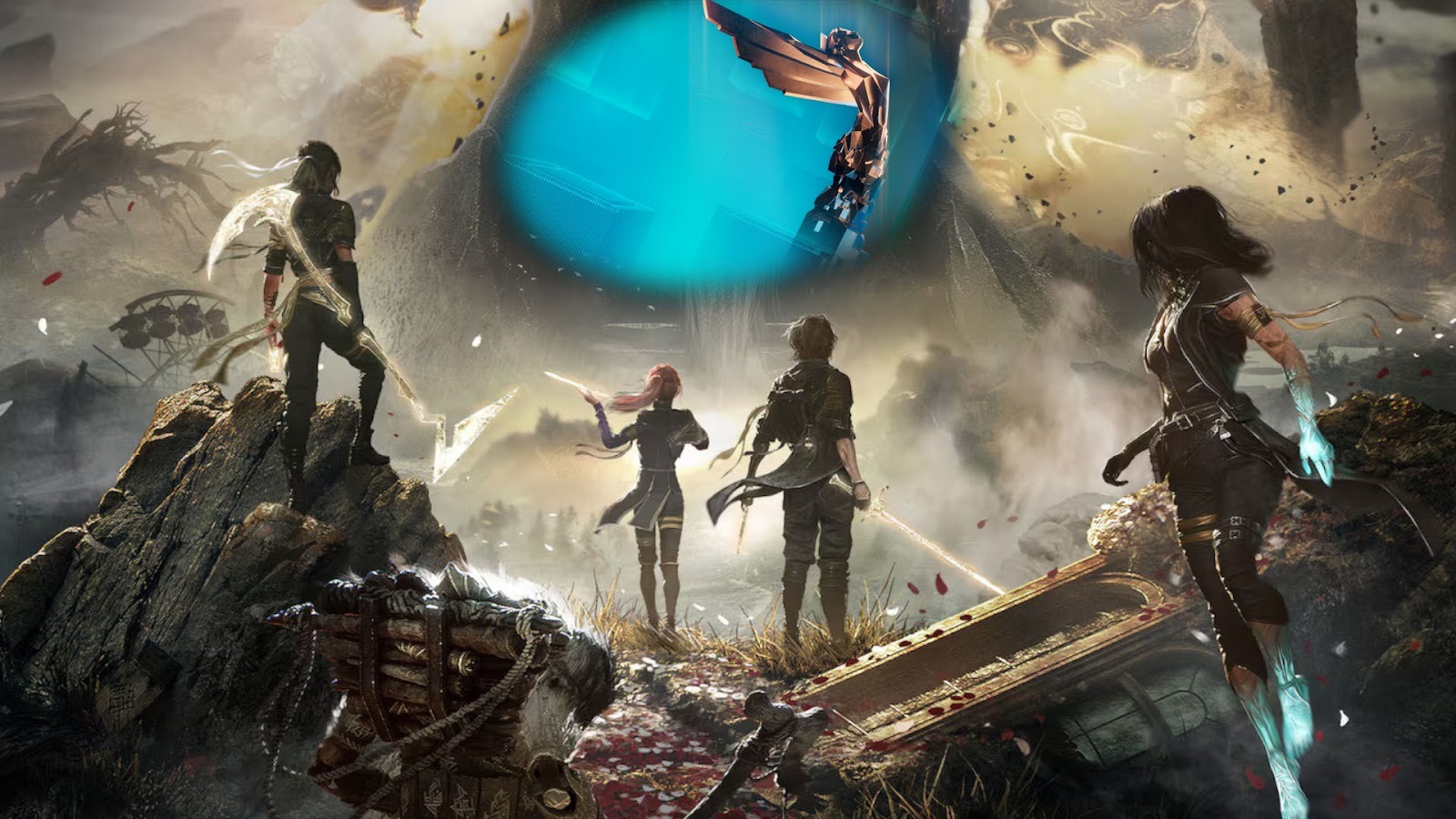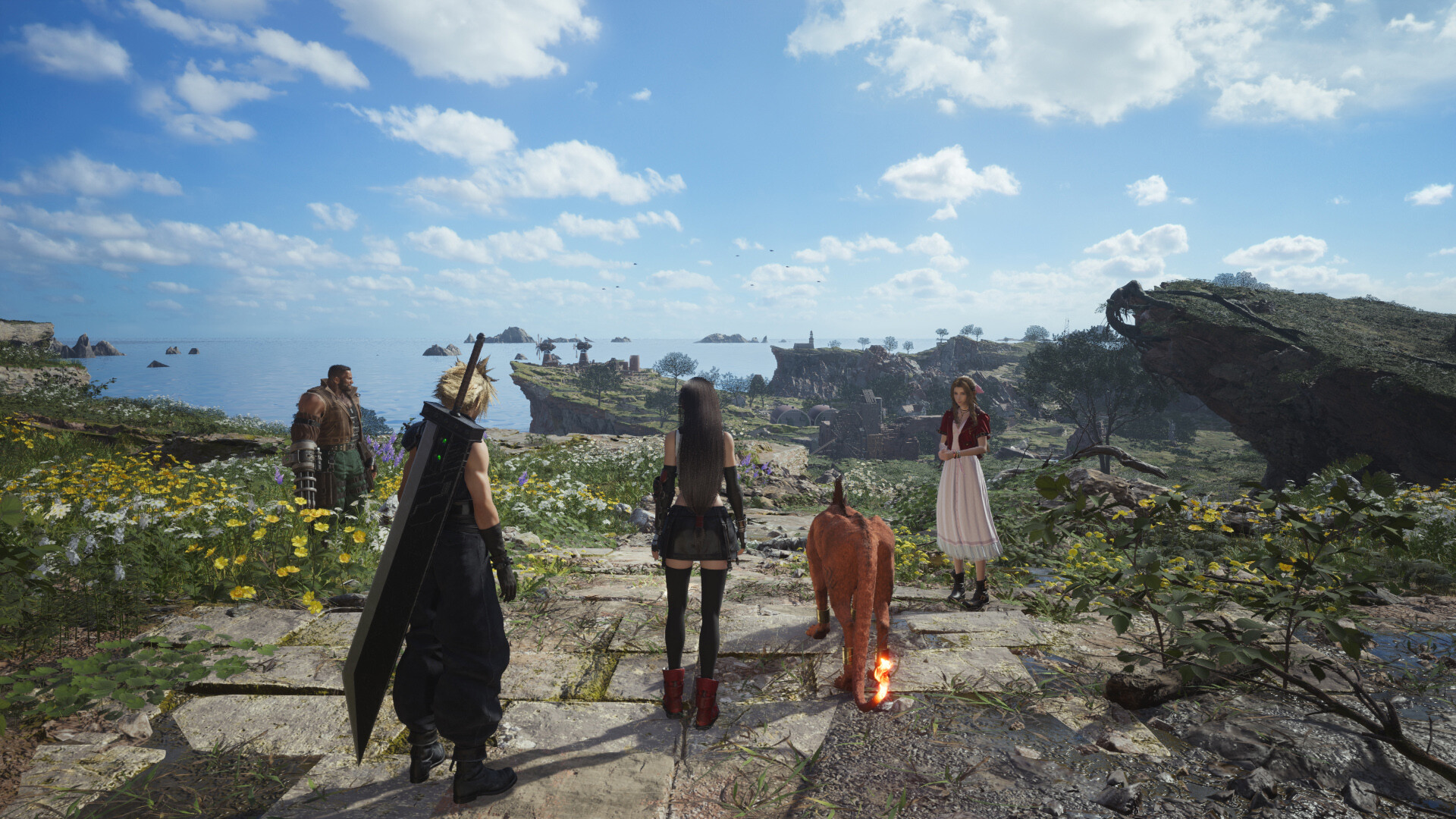You can trust VideoGamer. Our team of gaming experts spend hours testing and reviewing the latest games, to ensure you're reading the most comprehensive guide possible. Rest assured, all imagery and advice is unique and original. Check out how we test and review games here
I keep imagining, as I play Blackout, an audience whose fingers are sticky from sugary snacks, shifting in their seats and sighing with impatience. They don’t have the inclination to wait while I stockpile weapons and armour and would rather I sprint for the chaos at the middle of the map. The battle royale genre has this across the board, of course, but Blackout is different. It’s not a dram of single malt, to be sipped and savoured; it’s a cheery sour mash and Red Bull, sweet and rushing.
With a tap of the touchpad, you can take in the map. Its 28,000 square feet encompasses a hydroelectric dam, a construction site, a fracking tower, a firing range, and a factory. There are estates of housing and an abandoned asylum. It’s as if the demons and angels of industry and society clamour in silent competition. It’s bounded by the ocean on one side and speared by an inlet; on the other, the land stretches farther than you can see. In the air, you see the collapse, a bubble of blue light that swirls with thin-film interference, like an oil slick.
It’s an odd place, lacking any lived-in warmth, and it often makes me stop and stare. But being snapped out of reflection by the crack of gunfire is part of the joy; It’s tempting to smell the flowers in the face of death, and death abounds in Blackout. I love the sight of the names that pop up in the top right corner, like an obituary live feed. It feels impersonal near the beginning of a match, but by the time you’re down to the last ten, each death feels like someone you knew, someone not far away. You never feel fully in control, and you may drop at any moment. Aside from your end coming often by way of a .50 cal bullet, it’s a lot like life – and similarly short.
The collapse closes in quickly, a couple of minutes at most between each constriction, and life in Blackout is tailored accordingly. Your ground slide and sprint speed, coupled with your ability to vault like a hurdler, shave you into the shape of a missile, your nose cone pointed squarely at the centre. Likewise the vehicles – quad bikes, choppers – can spirit you to safety in a pinch, at the expense of drawing massive attention to yourself. But just as the audience grows restless, the attention arrives, and you’re rarely ill-equipped.
Guns are scattered like breadcrumbs, leading you through back doors, out onto porches, and away into clearings. What at first seems a trail of treats soon loses its glint as you see how generously they are scattered throughout, but that isn’t the point. The point is that everyone is armed for the good of the show. The advantage of this all-round armament is how it forces creative tactics and Hollywood set piece moments. If everyone has a gun, then it becomes about outclassing your foe.
Waiting in the bathroom of a two-storey house, I think I hear a window breaking below. I squat in the sink with my back to the wall and my 12-gauge pointed at the closed door. The audience is giggling with glee, but their attention won’t stay fixed for long; the collapse is drawing near, and something has got to give. No one comes through the door and I have to leap through the window to avoid being scalded by the blue. I hit the ground and start running. I make it three paces before a shotgun blast hits my back. I knew I heard something.
I was out, but it wasn’t about me. It was about the show, and I soon join the ranks of the restive theatregoers in Spectator Mode. It’s almost as exciting as taking part. Aside from softening the blow of the buckshot, Spectator Mode lets you in on what it’s all about: the best seat in the house. You follow the person who killed you, and switch to whoever kills them, and so on until the victor prevails.
Or not. You can leap from another chopper, above another island, in under a minute’s time. That disposability means that however close I get to the number one spot, I am never above wayward tactics, the likes of which only a fool would employ. A glorious, hero fool. Teaming with an ally and having him squat on the back of a quad bike, armed only with a pistol, say, or parachuting after someone to thump them to death with my bare hands before they get hold of a rifle. There’s nothing like a bit of clowning to start things off with a laugh.
Perhaps that’s Blackout’s greatest, oddest achievement. With all the po-faced military pomp that a Call of Duty game might have brought to the battle royale genre, it’s done the opposite – speeding things up and heightening the thrills. It’s made a battle royale what it should be: an insane spectacle to be devoured by a devious and fickle audience.
Call of Duty: Black Ops 4
- Platform(s): PC, PlayStation 4, Xbox One
- Genre(s): Action, First Person, Shooter
